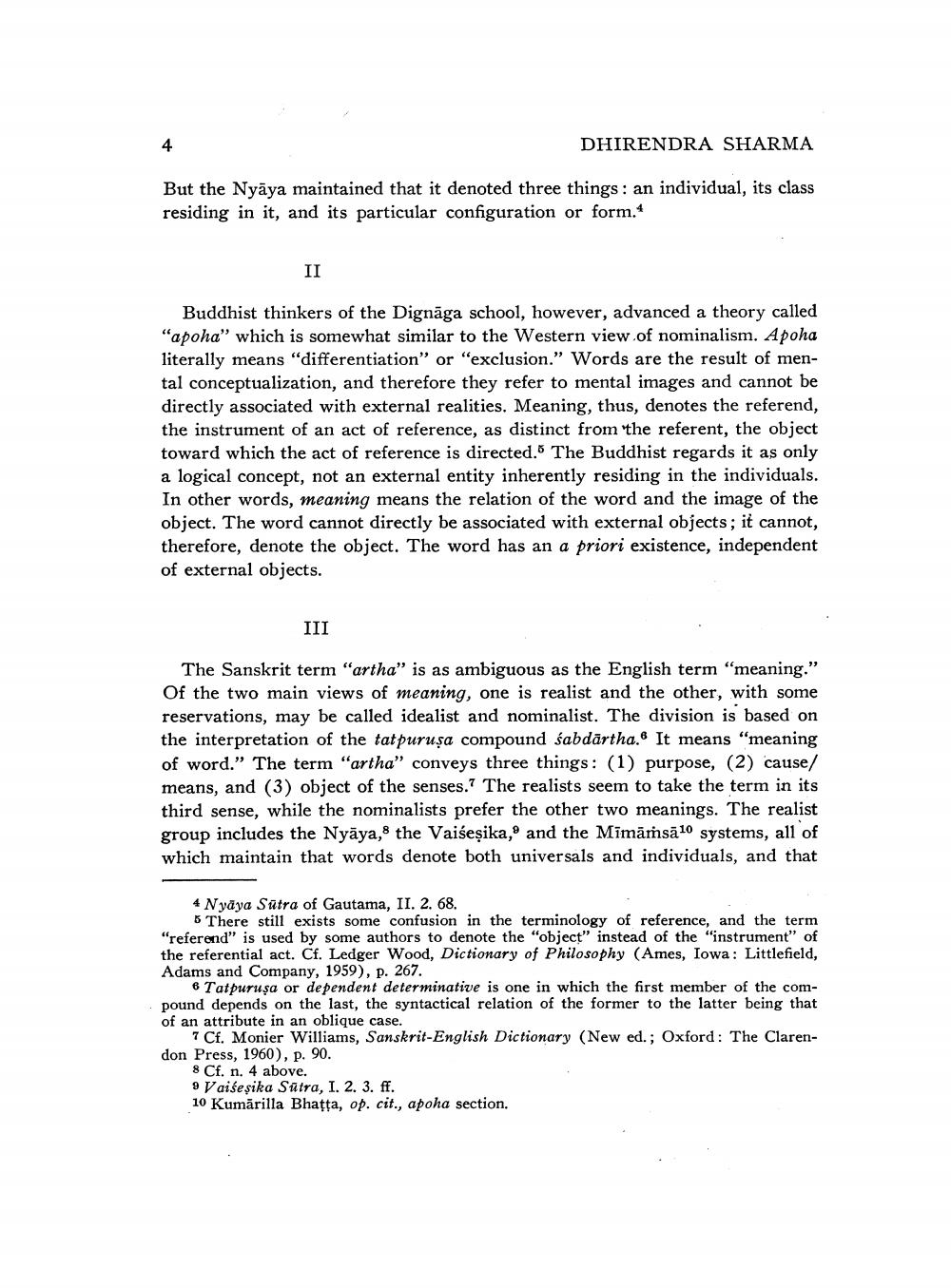________________
DHIRENDRA SHARMA
But the Nyāya maintained that it denoted three things : an individual, its class residing in it, and its particular configuration or form.
Buddhist thinkers of the Dignāga school, however, advanced a theory called "apoha" which is somewhat similar to the Western view of nominalism. Apoha literally means "differentiation" or "exclusion." Words are the result of mental conceptualization, and therefore they refer to mental images and cannot be directly associated with external realities. Meaning, thus, denotes the referend, the instrument of an act of reference, as distinct from the referent, the object toward which the act of reference is directed. The Buddhist regards it as only a logical concept, not an external entity inherently residing in the individuals. In other words, meaning means the relation of the word and the image of the object. The word cannot directly be associated with external objects; it cannot, therefore, denote the object. The word has an a priori existence, independent of external objects.
III
The Sanskrit term "artha" is as ambiguous as the English term "meaning." Of the two main views of meaning, one is realist and the other, with some reservations, may be called idealist and nominalist. The division is based on the interpretation of the tatpuruşa compound sabdārtha. It means "meaning of word." The term "artha" conveys three things: (1) purpose, (2) cause/ means, and (3) object of the senses. The realists seem to take the term in its third sense, while the nominalists prefer the other two meanings. The realist group includes the Nyāya,s the Vaiseșika, and the Mīmāmsālo systems, all of which maintain that words denote both universals and individuals, and that
4 Nyāya Sutra of Gautama, II. 2. 68.
5 There still exists some confusion in the terminology of reference, and the term "referend" is used by some authors to denote the "object" instead of the "instrument" of the referential act. Cf. Ledger Wood, Dictionary of Philosophy (Ames, Iowa: Littlefield, Adams and Company, 1959), p. 267.
6 Tatpuruşa or dependent determinative is one in which the first member of the compound depends on the last, the syntactical relation of the former to the latter being that of an attribute in an oblique case.
7 Cf. Monier Williams, Sanskrit-English Dictionary (New ed.; Oxford: The Clarendon Press, 1960), p. 90.
8 Cf. n. 4 above. 9 Vaiseșika Satra, I. 2. 3. ff. 10 Kumārilla Bhatta, op. cit., apoha section.




